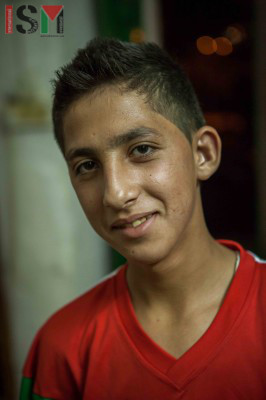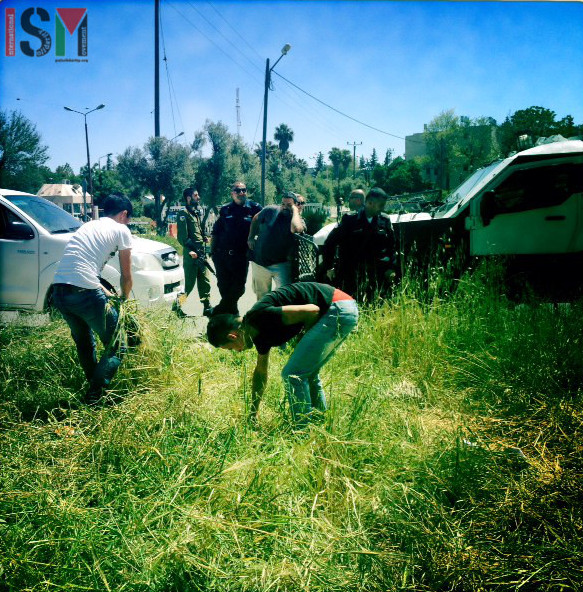Category: Hebron
-
Two Palestinian youths violently arrested in Al-Khalil (Hebron)
04th May 2015 | International Solidarity Movement, Khalil Team | Hebron, Occupied Palestine In the early evening of Friday the 1st of May, Israeli forces arrested two Palestinian youths in the Tel Rumeida neighborhood of occupied Al-Khalil (Hebron). Nizar Salhab, accused of attacking a settler was released the same evening, Awne Imad Abu Shamsiyeh was…
-
Harvesting While Harassed- Jabari family face military and settlers to gather their crops
3rd May 2015 | International Solidarity Movement, Khalil Team | Hebron, Occupied Palestine The Jabari family owns land sandwiched in between the illegal settlements of Kiryat Arba and Givat Ha’vot. In 2001, settlers illegally took over part of the land to erect a synagogue-tent on the Jaabari-family land. All settlements are illegal under international law,…
-
One person shot at protest against Israel’s cancer-causing chemical plants in Tulkarem
29th April 2015 | International Solidarity Movement, Huwwara Team | Tulkarem, Occupied Palestine Around fifty Palestinians and international activists gathered today in Tulkarem, east of Nablus, to protest the presence of 11 Israeli chemical plants located in the city. The protest took place outside the Gishuri chemical plant on what is locally referred to as the “death…



